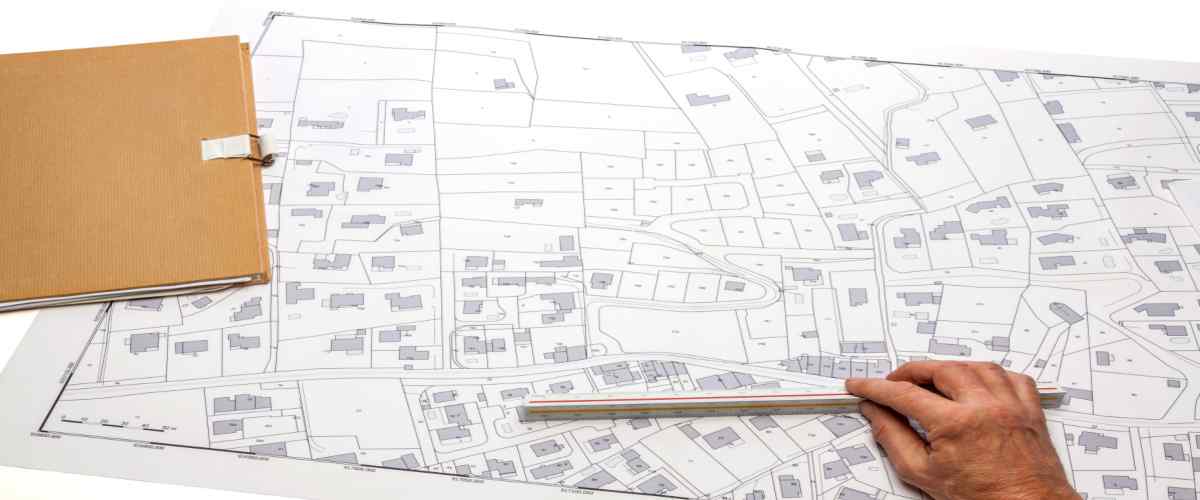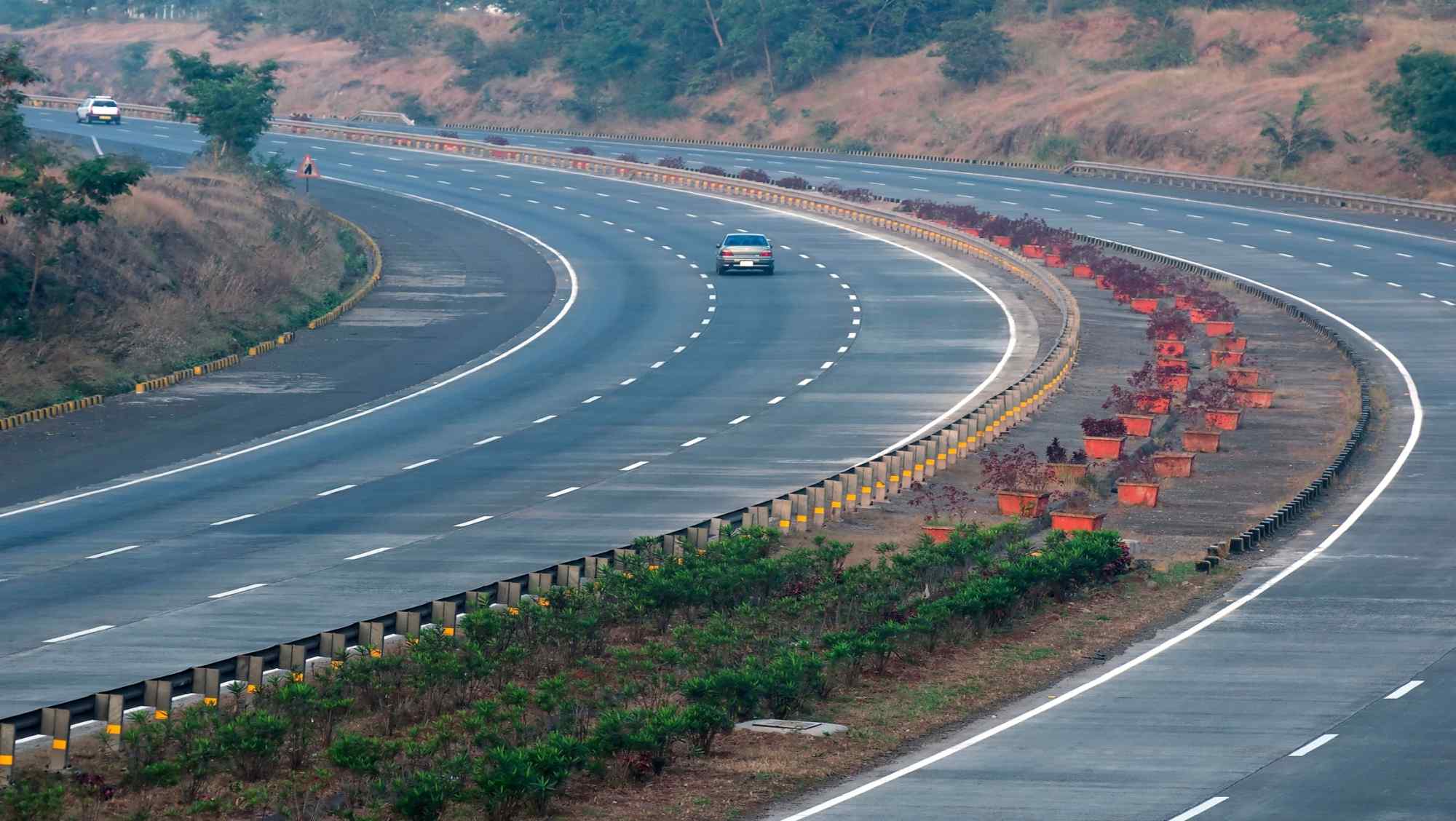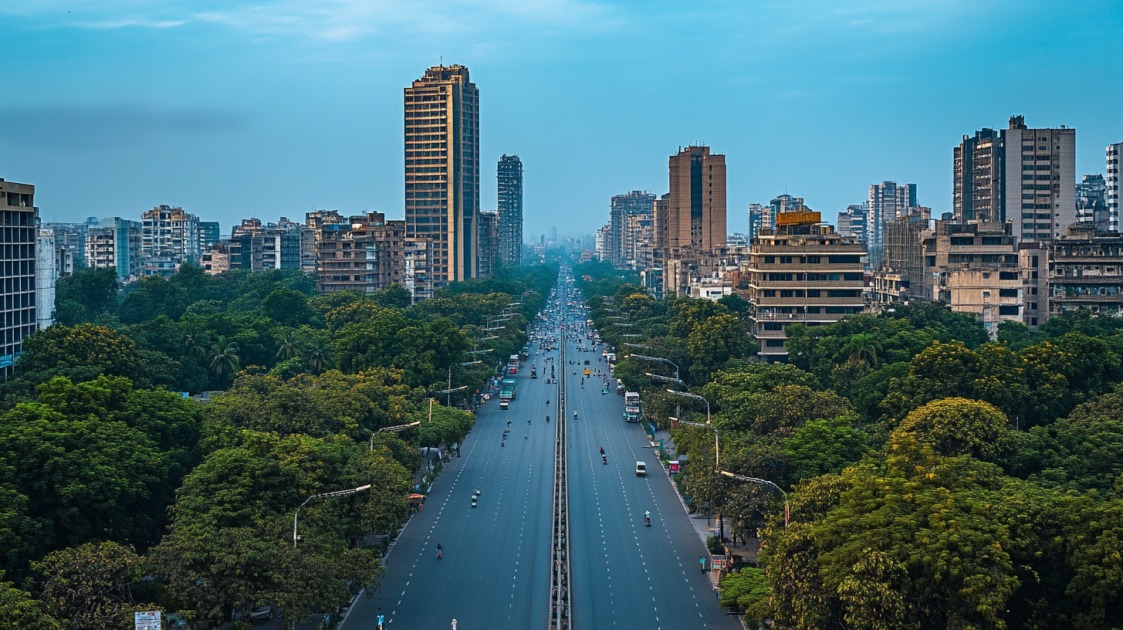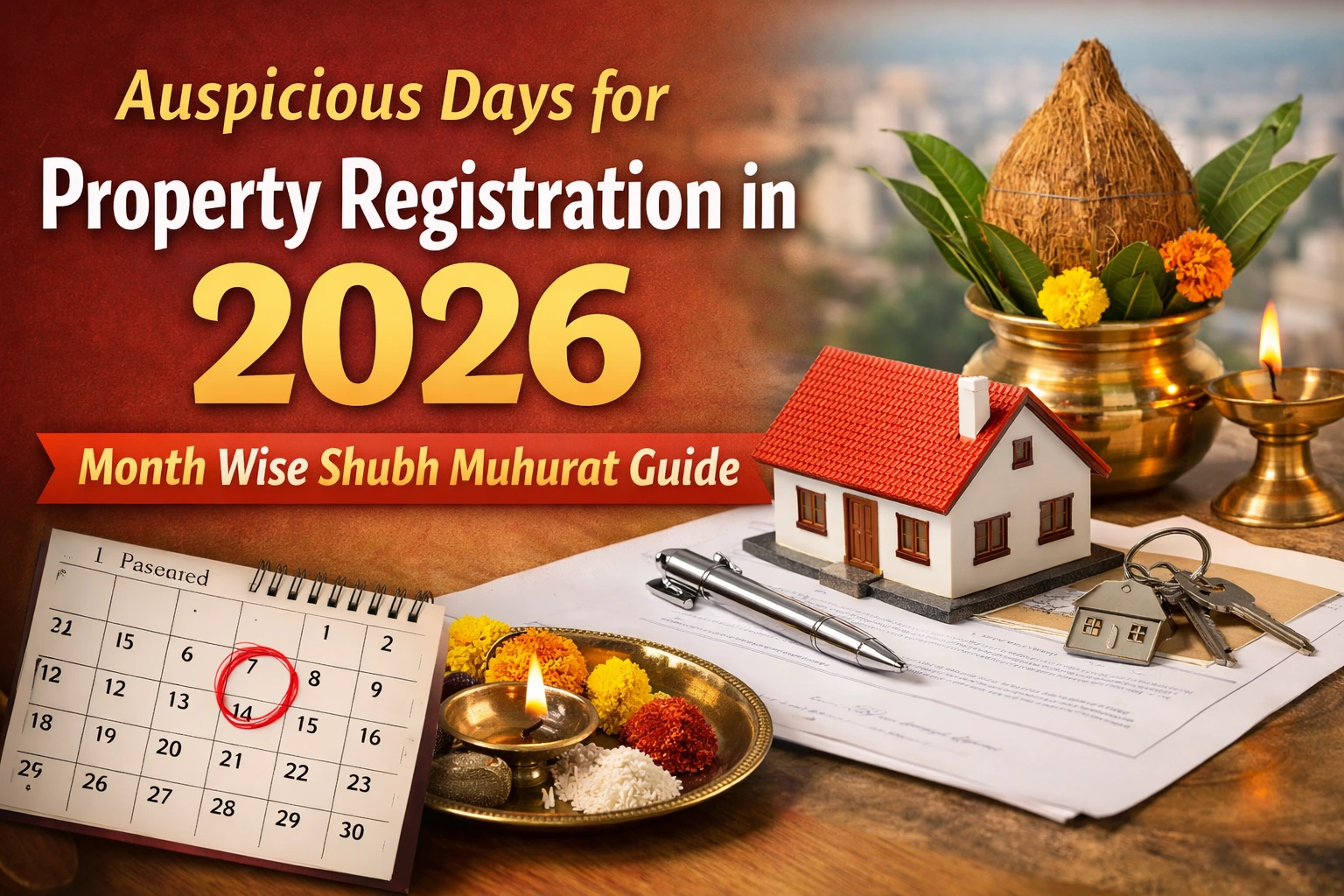Table of Contents
Quality Service Guarantee Or Painting Free

Get a rental agreement with doorstep delivery

Find the BEST deals and get unbelievable DISCOUNTS directly from builders!

5-Star rated painters, premium paints and services at the BEST PRICES!
Loved what you read? Share it with others!

Everything You Need to Know About Land Measurement Units in India
Table of Contents
Land measurement methods have always evolved over time. Initially, human body parts were employed for measurement. Diverse civilizations have introduced various units, spanning acre, inches, chain, and more. Today, standardized metrics like square feet and hectares coexist with historical units. As you explore land ownership, coping with numerous measurement names is common. Amidst this complexity, the use of a land measurement calculator and understanding land purchase regulations in India are vital considerations.
Frequently, individuals find themselves pondering the precise standard unit for land measurement. Fortunately, this blog serves as an informative resource, not only elucidating the land measurement practices in the nation but also providing a comprehensive land measurement table for guidance.
More often than not, you may end up wondering about what exactly the standard unit of measuring land is. Thankfully, we have this blog to offer you, that not only explains the ways land is measured in the country, but also what they are along with a helpful guiding land measurement table. Read on!
Quality Service Guarantee Or Painting Free

Get a rental agreement with doorstep delivery

Find the BEST deals and get unbelievable DISCOUNTS directly from builders!

5-Star rated painters, premium paints and services at the BEST PRICES!
Also read: Wish to build your abode on the land you own? Apply for a home construction loan today
How to Measure Land in India?
The process of land measurement and surveying involves establishing accurate points within a terrestrial area, utilizing a three-dimensional perspective. This entails assessing distances, angles, and positioning these 3D points on the Earth's surface from any location. Surveyors, professionals skilled in engineering, trigonometry, law, mathematics, physics, and geometry, employ this approach to create land maps and boundaries recognized by the government.
Gunter's Chain, a historic example, utilized chains of specific length (66 ft, 100 links) for land measurement. Invented in 1620 by Edmund Gunter, an English mathematician, it became a standard unit for land measurement, influencing English-speaking countries like the United Kingdom, United States, and Canada.
The history of area measurement units can be traced back to the Indus Valley civilisation, where such units of measure have been recorded in our nation’s architecture, metallurgical artefacts, and even folk tales. The term ‘ratti’ from the Sanskrit term ‘raktika’ for example, can be still found in our daily usage of Hindi and Urdu, tracing its origin in measuring the weight of seeds during Akbar’s Mughal regime. Across several empires trying out different measurement units, it was on October the 1st, 1958, when the Government of India adopted the SI or the International System of Units, where:
- 1 metre = 1,000 millimetres
- 1 acre = 100 square metres
- 1 hectare = 100 acres
Despite the diversity of languages, cultures, and religions, what remains the standardized unit for land measurement among modern Indian citizens? Moreover, various measures and constraints are implemented to conserve and protect lands crucial for agroforestry, agriculture, polycultures, and food forests. As a potential future homebuyer, how can you ascertain a fair deal when different land units, such as "bigha" (in several northern states of India) and "kuncham" (in Andhra Pradesh), are understood by different people?
So, while you now understand why the land reform measures were necessary, it is time to familiarise yourself with both the standard and regional units of land measurement.
Also read: Land Survey Number: Verify Land Ownership Details Easily
Land Area Measurement Units Across India
While we already know about the metre, hectare, acres etc. already in some native language or the other (a ‘yard’ as per the land measurement scale, for example, is also known as ‘gaj’ in Hindi), it is important to know clearly how they stack up against each other.
Standard Land Measurement Units in India
So how do these standard units measure in terms of land size details?
- Acre (ac): This is a conventional system internationally used to measure land size with the symbol ‘ac’.
- Hectare (ha): This is a unit of land size that equals 10,000 sq. m. or 107,693 sq. ft. or 1 square hectometre (100 m x100 m), commonly used in legal and survey documents such as sale deeds, planning, as well as used as agricultural land measurement units
- Square foot (sq. ft.): This is a unit of measurement that is equal to 144 square inches.
Let’s look at what converted property measurements of an area look like:
| 1 sq. m. | 10.76 sq. ft. |
| 1 ac | 43560 sq. ft. |
| 1 ac | 4840 sq. yds. |
| 1 sq. yd. | 9 sq. ft. |
| 1 ha | 10,000 sq. m. |
| 1 ha | 100 ac |
| 1 sq. km. | 247.1 ac |
Here you must also understand the difference between the terms ‘ground’ and ‘plot’. While many may have the general question about the measure of 1 plot of land in square feet in India, the reality is that a ‘plot’ is nothing more than a piece of land. For land measurement in English therefore, you can have a plot with different sq. ft. sizes, whereas a ‘ground’ refers to a land that measures exactly 2,400 sq. ft. in size. This is why land measurement formulas and documents always provide the measurement of land in ‘ground’ or ‘sq. ft.’.
Also read: How To Convert Agricultural Land to Residential Land in India? Land-Use Conversion 101
If you are now wondering how to measure the land area in terms that you can understand everywhere in India, the following land measurement chart will help.
How Land Is Measured Across India Vs Standard Units
The types of measurement units in India as well as their nomenclature differs from state(s) to state(s), depending on where you are,
Units of land measurement conversion in North India
| Unit | Conversion of land size details | Regions used in |
| 1 Bigha | Pukka 3,025 sq. yds. | Haryana, Bihar, Uttar Pradesh, Punjab |
| 1 Sarsahi (Square Karam) | 30.25 sq. ft. | Haryana, Punjab, Himachal Pradesh |
| 1 Bigha | 968 sq. yds. | Some parts of Uttarakhand & Himachal Pradesh |
| Bigha | Kachha 1,008.33 sq. yds. | Parts of Haryana, Uttar Pradesh, Punjab where 1 Bigha is 1/3rd of 1 Pukka Bigha |
| 1 Bigha | 900 sq. yds. | Some parts of Uttarakhand & Himachal Pradesh |
| 1 Killa | 4,840 sq. yds. | Some parts of Punjab and Haryana |
| 1 Kanal | 5,445 sq. ft. | Haryana, Himachal Pradesh, Punjab, Jammu & Kashmir |
| 1 Biswa | 45 sq. yds. | Some parts of Himachal Pradesh, Uttarakhand |
| 1 Biswa (Kaccha) | 50.417 sq. yds. | Some parts of Punjab, Uttar Pradesh, Haryana |
| 1 Biswa | Pukka 151.25 sq. yds. | Some parts of Uttar Pradesh, Haryana, Punjab |
| 1 Ghumaon | 4,840 sq. yds. | Some parts of Haryana, Himachal Pradesh, Punjab. |
| 1 Biswa | 48.4 sq. yds. | Some parts of Himachal Pradesh, Uttarakhand |
| 1 Biswansi | 1/20 Biswa | Uttar Pradesh, Haryana, Punjab, Uttarakhand, Himachal Pradesh. |
Also read: Know All About the Land You Are Buying with the Help of Maha Bhunaksha
Units of how to measure property and land size in South India
| Unit | Conversion of land size details | Regions used in |
| 1 Ankanam | 72 sq. ft. | Andhra Pradesh, Karnataka |
| 1 Guntha | 1,089 sq. ft. | Karnataka, Andhra Pradesh, Maharashtra |
| 1 Kuncham | 484 sq. yds. | Andhra Pradesh |
| 1 Bigha | 1,600 sq. yds. | Assam, Bengal |
| 1 Ground | 2,400 sq. ft. | Some parts of Tamil Nadu |
| 1 Cent | 435.6 sq. ft. | Tamil Nadu, Kerala, Karnataka |
Units How to measure the land size in East India
| Unit | Conversion of land size details | Regions used in |
| 1 Kattha | 1,361.25 sq. ft. | Bihar |
| 1 Chatak | 180 sq. ft. | West Bengal |
| 1 Dhur | 68.0625 sq. ft. | Jharkhand and Bihar |
| 1 Decimal | 48.4 sq. yds. | West Bengal |
| 1 Kattha | 2,880 sq. ft. | Assam |
| 1 Kattha | 720 sq. ft. | West Bengal |
| 1 Dhur | 3.6 sq. ft. | Tripura |
Also read: The Top Posh Areas in Chennai – Landmarks, Real Estate Prices and More
Land measurement units in East India
| Unit | Conversion of land size details | Regions used in |
| 1 Bigha | Pukka 3,025 sq. yds. | Some parts of Bihar and Rajasthan |
| 1 Biswansi | 1/20 Biswa | Rajasthan |
| 1 Bigha | 1,936 sq. yds. | Some parts of Gujarat and Rajasthan |
| 1 Biswa | 96.8 sq. yds. | Some southern parts of Rajasthan |
| 1 Biswa | Pukka 151.25 sq. yds. | Some northern parts of Rajasthan |
Ways To Find Your Property Size
Now that you know what the several land measurement units are in India, where can you find such information? Regardless of whether you are a builder, surveyor, homeowner, town planner or more, there are more than a few ways to find the exact and full site measurements in India.
- Property Deed: your property deed has all the information of the area you need in a single document, along with the lot boundaries.
- Plat maps: Be it property plat maps or subdivision plat maps, the document contains the layout of your plot/subdivision, its tax identification number, as well as the boundary line dimensions.
- Survey plan: The survey plan is the boundary survey done professionally by surveyors
- Tax maps: These are local municipality documents that are kept in municipality buildings and also stored online on websites.
How Can NoBroker Help?
The journey of finding the right home is both exhilarating and demanding. During this process, it is crucial to possess a clear understanding of the land measurement units in India. Equally important is ensuring the legality of the plot upon which the home is constructed. The prevalence of fraudulent constructions underscores the significance of this step, as it can lead to emotional distress, legal entanglements, and substantial financial repercussions. If you do not know where to begin, be sure to check out NoBroker’s top-starred financial and legal experts in property ownership or you can go for a completely verified home by trusted real estate developers all across the nation.
Also read: A Detailed Guide on Bhoomi Karnataka: Karnataka Land Records 101
Frequently Asked Questions?
In India, the task of land measurement is undertaken by professionals referred to as surveyors. These experts are responsible for delineating land maps and boundaries that hold legal recognition from the government. Their work is rooted in an amalgamation of disciplines including engineering, trigonometry, law, mathematics, physics, and geometry.
1 bigha is equivalent to approximately 27,225 square feet.
It was on October the 1st, 1958, when the Government of India adopted the SI or the International System of Units, where:
1 metre = 1,000 millimetres
1 acre = 100 square metres
1 hectare = 100 acres
A ‘plot’ is nothing more than a piece of land. For land measurement in English, you can have a plot with different sq. ft. sizes, whereas a ‘ground’ refers to a land that measures exactly 2,400 sq. ft. in size. This is why land measurement formulas and documents always provide the measurement of land in ‘ground’ or ‘sq. ft.’.
There are more than a few ways to find the exact and full site measurements in India, including Property Deeds, Plat maps, Survey plans, Tax maps, and more.
To convert bigha to acre, you can use the conversion factor of approximately 0.625 acres per bigha.
Yes, there are various online land area calculators that can help you convert different units of land measurement, such as bigha to square feet or acres.
You can use a unit converter to easily convert meter to feet for land measurements. One meter is approximately equal to 3.281 feet.
There are numerous unit converter tools available online that can help you convert land measurements between different units, such as bigha to square feet or acres.
To convert bigha to square feet, you can use the conversion factor provided for the specific region. For example, if 1 bigha is 27,225 square feet, you can multiply the number of bighas by this conversion factor to get the equivalent square feet.
Recommended Reading

Mumbai-Pune Expressway: Route Distance, Tolls, Rental and Property Trends in 2026
January 31, 2025
102425+ views

Market Value in Andhra Pradesh: District-Wise Rates and Latest Market Trends in 2026
February 12, 2025
97570+ views

Property Rates in Mumbai: Price per Sq. Ft. and Rental Trends in Top Areas 2025
February 12, 2025
94021+ views

10 Best Real Estate Companies in India for Investment & Property Development (2026)
May 2, 2025
75092+ views

Top 15 Largest States in India by Area, Population, Real Estate Insights and GDP Data in 2026
May 7, 2025
73402+ views
Loved what you read? Share it with others!
Most Viewed Articles

GFRG Panels: A New Technology in Building Construction
January 31, 2025
261920+ views

Top Cleanest Cities in India: Swachh Survekshan Top Ranked List
July 25, 2025
224924+ views

February 6, 2026
213530+ views

How Mivan Construction Technology Is Transforming the Art of Building!
January 31, 2025
183838+ views

CIDCO Lottery: Application Process, Eligibility, Flat Prices and Dates in 2026
April 30, 2025
138354+ views
Recent blogs in
February 19, 2026 by Krishnanunni H M
Top 10 Construction Companies in Ghaziabad: Leading Builders and Developers List in 2026
February 19, 2026 by Kruthi
Top 10 Construction Companies In Jaipur for Residential and Commercial Projects in 2026
February 19, 2026 by Krishnanunni H M
10 Best Construction Companies In Pune: Trusted Builders and Contractors in 2026
February 18, 2026 by Kruthi









 Full RM + FRM support
Full RM + FRM support

Join the conversation!